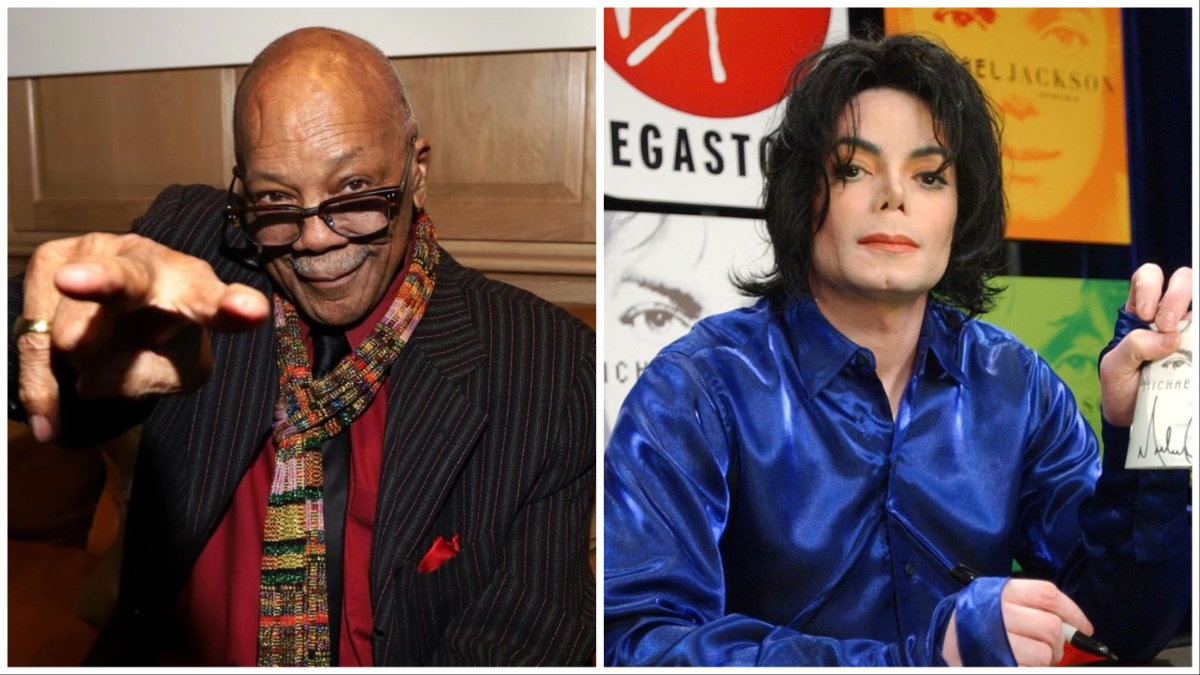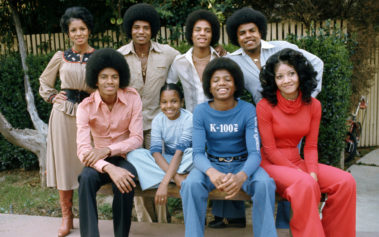The entertainment industry lost a legend on Nov. 3, 2024, after music producer Quincy Jones passed away at the age of 91.
Jones worked with numerous musicians throughout his career, including Dizzy Gillespie, Ray Charles and influnced the careers of Frank Sinatra and Aretha Franklin. He also famously produced the late Michael Jackson’s classic albums “Off the Wall,” “Thriller,” and “Bad.”

Before his death, Jones was reportedly embroiled in a $30 million legal battle with the Michael Jackson Estate over royalty shares, according to RadarOnline.
After MJ died in 2009, the Jackson Estate allegedly negotiated a larger share of the profits from his music with Sony Entertainment that would cut Jones out of the agreement.
Jones was offered a $3 million settlement, much lower than the $30 million the Chicago-born composer felt he was owed.
“Quincy believes the Jacksons cheated him and he’s going to make them pay. He deserves better treatment from those ungrateful Jacksons!” a source told the outlet in 2013.
The insider also stated that Jones saw himself as the “genius behind” Michael’s career success and the “Thriller” album which made him millions as a “superstar.”
Jones filed a breach-of-contract lawsuit against the Jackson Estate in 2013 after supposedly being “frustrated” with the matter for years. Sony Music Entertainment and Epic Records were also named in the complaint.
In 2017, a Los Angeles jury eventually awarded the “Secret Garden” composer $9.42 million in damages over the use of Jones-produced tracks in the Michale Jackson concert film “This Is It” and two Cirque du Soleil shows.
Two contracts signed by both Jackson and Jones in 1978 and 1985 were at the center of the civil case. “Off the Wall” came out in 1979 and “Thriller” was released in 1982.
A highly-publicized 2018 interview with Vulture included Jones saying, “I hate to get into this publicly, but Michael stole a lot of stuff. He stole a lot of songs.”
However, in 2020, California’s 2nd District Court of Appeal overturned the 2017 decision due to the original trial judge allowing the jury to misinterpret Jones’ contract.
The appeals court found that the jury incorrectly granted Jones money from licensing fees and remixes of Jackson’s master recordings. Jones only walked away with $2.6 million of the initial $9.42 million following the appeal court’s verdict.
“While we disagree with portions of the Court’s decision and are evaluating our options going forward, we are pleased that the Court affirmed the jury’s determination that MJJP failed to pay Quincy Jones more than $2.5M that it owed him,” Quincy’s lawyer, J. Michael Hennigan, stated at the time, according to the Associated Press.
The Jacksons’ family attorney, Howard Weitzman, said, “Quincy Jones was the last person we thought would try to take advantage of Michael Jackson by filing a lawsuit three years after he died asking for tens of millions of dollars he wasn’t entitled to.”
Before “Off The Wall,” Jones and Jackson both contributed to the 1978 movie “The Wiz.” Jones helped create songs for the Sidney Lumet-directed musical that Jackson starred in as Scarecrow.
“He knew how to do his homework, whether it was with Fred Astaire and Gene Kelly or whoever, James Brown. He was doing some Elvis copying, too,” Jones told The Hollywood Reporter in 2021 about being around Jackson on “The Wiz” set.
Four years after “The Wiz” premiered, “Thriller” was released, spending 37 weeks atop the Billboard 200 album chart. Jackson’s sixth studio album won eight trophies at the 26th annual Grammy Awards in 1984, including Album of the Year.
Additionally, the Epic Records-backed masterpiece earned 34-time-platinum certification from the Recording Industry Association of America, making MJ’s sixth studio LP one of the best-selling albums in U.S. history.
The world was saddened to learn Jackson died on June 25, 2009, at 50. The Los Angeles County Department of Medical Examiner-Coroner labeled his death a homicide.
Conrad Murray, Jackson’s personal physician, was convicted of involuntary manslaughter in Nov. 2011. Murray administered the lethal dose of propofol to the 13-time Grammy Award winner, causing his death.
“Michael Jackson was a different kind of entertainer. A man-child in many ways, he was beyond professional and dedicated,” Jones wrote about MJ in a 2009 eulogy published in the Los Angeles Times.
Jones also added, “There will be a lot written about what came next in Michael’s life, but for me all of that is just noise. I promise you in 50, 75, 100 years, what will be remembered is the music.”
As of this writing, Jones’ cause of death has not been publicly revealed. The music industry icon experienced two brain aneurysms in 1974 when he was 41 years old.
Jones also battled with Type 2 diabetes and went into a diabetic coma in 2015. He wrote on Facebook, “By the grace of God I made it through, but not without having to make some MAJOR adjustments.”


